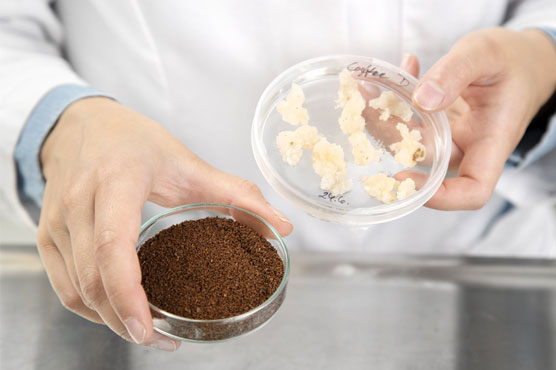Finnish scientists produces coffee from cell cultures

Finnish scientists produces coffee from cell cultures
HELSINKI (Reuters) - With climate change threatening traditional coffee farming, Finnish scientists say they have produced coffee from cell cultures with an aroma and taste resembling the real thing.
The VTT Technical Research Centre of Finland may have come up with a more sustainable alternative to growing coffee beans by floating cell cultures in bio-reactors filled with a nutrient medium used to make various animal- and plant-based products.
Heikki Aisala, the VTT researcher in charge of evaluating the process, said cups of cellular coffee probably could not pass standard taste tests just yet, but had lots of potential for a multi-billion-dollar global industry.
"Not like of course 100%. It tastes like a combination of different types of coffees. We’re not there yet with the commercial variety, but it certainly does resemble coffee at the moment," said Aisala.
VTT Research Team Leader Heiko Rischer said lab-grown cell cultures offered a more sustainable way to make coffee, given that because of high demand, countries were devoting ever larger tracts of land to grow coffee beans, leading to deforestation.
Rischer said the environmental benefits of lab-grown coffee included reduced use of pesticides and fertilizer and less need to ship coffee beans long distances to markets.
In Europe, lab-grown coffee would need to be approved as "Novel Food" before being marketed.
But will discriminating coffee aficionados drink it?
Satu, a barista at a Helsinki coffee shop, thinks so.
"I think some day we’re going that way because of all the natural coffee sources vanishing, so we have to move along...If it tastes good and the aroma is coffee based, so why not? I think it’s possible," she said.

